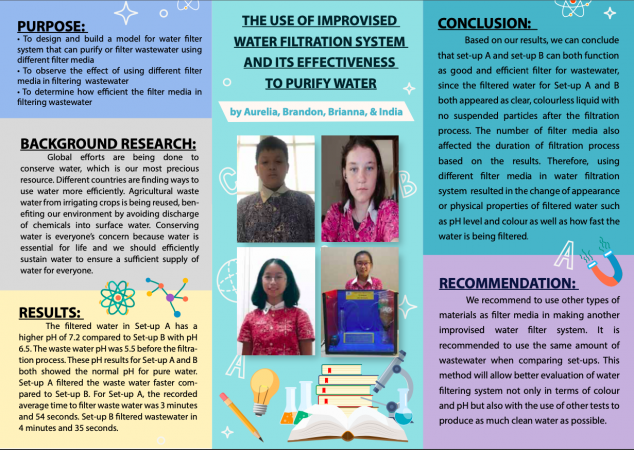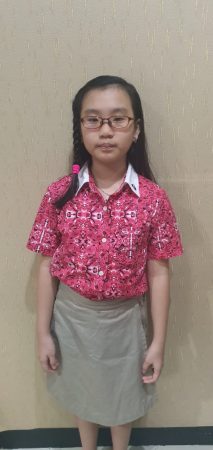This research project aims to assess the effectiveness of improvised water filter
the system in filtering wastewater. We would like to contribute in saving our environment by creating a model for reusing wastewater through the process of filtration. This study also analyses the effectiveness of different filter media in purifying water by carefully observing the appearance and properties of filtered water and as well as on how fast it can filter wastewater. Two set-ups were used in the model to observe the effect of changing the number of filter media in the process of filtration. Set-up A contains two filter media namely, sand and small stones. Set-up B contains four layers of filter media namely, sand, charcoal sponge, soft sponge and small stones. The results for the pH level and appearance of filtered were compared between Set-up A and B. The wastewater with a pH level of 5.5 was filtered separately for Set-up A and B. As a result, the filtered water changed its pH level for both set-ups. Filtered water in set-up A had a higher pH of 7.2 compared to the filtered water in Set-up B with a pH of 6.5. These pH results of filtered water collected in Set-up A and B both showed the normal pH level for pure water. The number of filter media also affected the time of filtration. Based on the results, set-up A filtered the wastewater faster compared to Set-up B.
- Researchers: Aurelia Lusia, Simon Brandon, Wijaya Oey, Brianna Abigail Tan and India Francesca Fenner
- Category: B (P6) - Science and Engineering
- School: BBS Primary - Balikpapan
- Project Coach: Ms Vanessa May Dangabara







